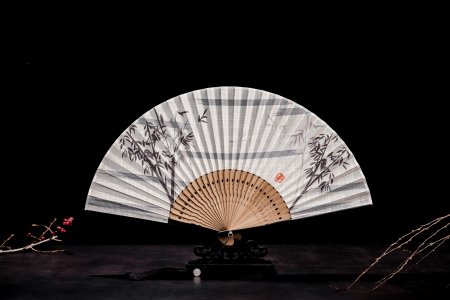The Characteristics of Japanese Fan:
Japanese fans, known as "sensu," are exquisite examples of craftsmanship and artistic dedication. These fans possess unique characteristics that make them both functional and aesthetically pleasing. Meticulously crafted with meticulous attention to detail, they feature delicate folding mechanisms and fine materials such as silk or paper, creating a lightweight and portable accessory. The craftsmanship is evident in the intricate designs and hand-painted motifs that adorn the fan, showcasing the artisan's expertise and creativity. Whether used for practical purposes, such as providing a cool breeze on a warm day, or as a stylish fashion statement, Japanese fans offer a graceful and elegant performance. Each fan is a testament to the professionalism and dedication of the craftsman, who imbues their work with a sense of tradition and beauty, making these fans not only functional objects but also cherished works of art that embody the timeless grace and refinement of Japanese culture.
Uses of Japanese Fan:
1. Symbol of Elegance and Grace: The use of a fan in Japanese culture is associated with grace, poise, and refined manners. It can be used to express politeness, modesty, or as a subtle form of communication.
2. Fashion Accessory: Japanese fans are often used as fashionable accessories, particularly during traditional ceremonies, festivals, or special events. They can complement traditional attire such as kimono or yukata, adding elegance and style to the overall look.
3. Traditional Performing Arts: Japanese fans are integral to various traditional performing arts, such as Noh, Kabuki, and Geisha dances. They are used by performers to enhance gestures, express emotions, or represent props within the performance.
4. Decorative Art and Crafts: Japanese fans are crafted with intricate designs and patterns, making them aesthetically pleasing. They can be displayed as decorative pieces in homes, offices, or cultural centers.
5. Gifts and Souvenirs: Japanese fans are popular as souvenirs and gifts due to their cultural significance and practical use. They can be given as tokens of appreciation or as mementos from Japan.
